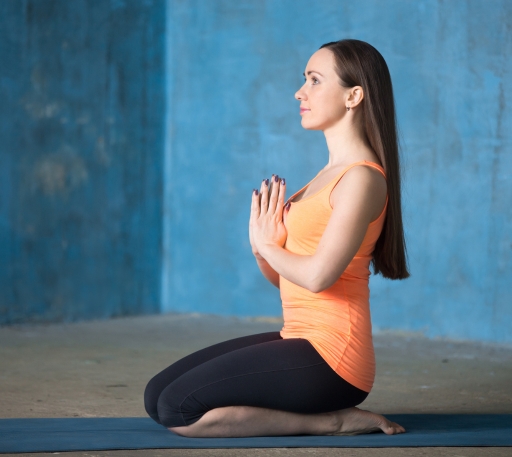As you navigate your journey toward mental well-being, the right approach can be invaluable. If you’re seeking treatment for handling your anxiety or depression, then holistic medicine can be beneficial for you.
In this post, we’ll probe into effective stress-relieving techniques that allow you to nurture both your mind and body.
Before submerging into stress-relieving techniques, it’s crucial to grasp the essence of holistic medicine and its multi-faceted approach to well-being.
What is Holistic Medicine?
Understanding holistic medicine means recognizing it as a comprehensive system that emphasizes treating the whole person—mind, body, and spirit—rather than isolated symptoms. This approach integrates mental, emotional, and social factors into your healthcare journey, fostering overall wellness.
Principles of Holistic Healing
Understanding the principles of holistic healing involves acknowledging that your body has an innate ability to heal itself. This method encourages you to engage in practices that promote balance and harmony within, addressing not just physical ailments but also emotional and spiritual health.
A major principle of holistic healing is individualized care. It recognizes that each person is unique, making personalized treatment vital. This includes exploring various holistic medicine options for anxiety and depression, allowing you to find what resonates best with your experiences and needs.
The Role of a Holistic Medicine Practitioner
On your journey to holistic health, a holistic medicine practitioner plays a vital role. They guide you in implementing tailored strategies that align with your specific circumstances and health concerns.
Medicine practitioners in this field emphasize collaboration and education. They empower you to understand your body and mind better, enabling you to take an active role in your healing process.
Whether it’s through holistic techniques for anxiety or depression, you will find support and guidance tailored exclusively to your needs.
The Connection Between Stress and Mental Health
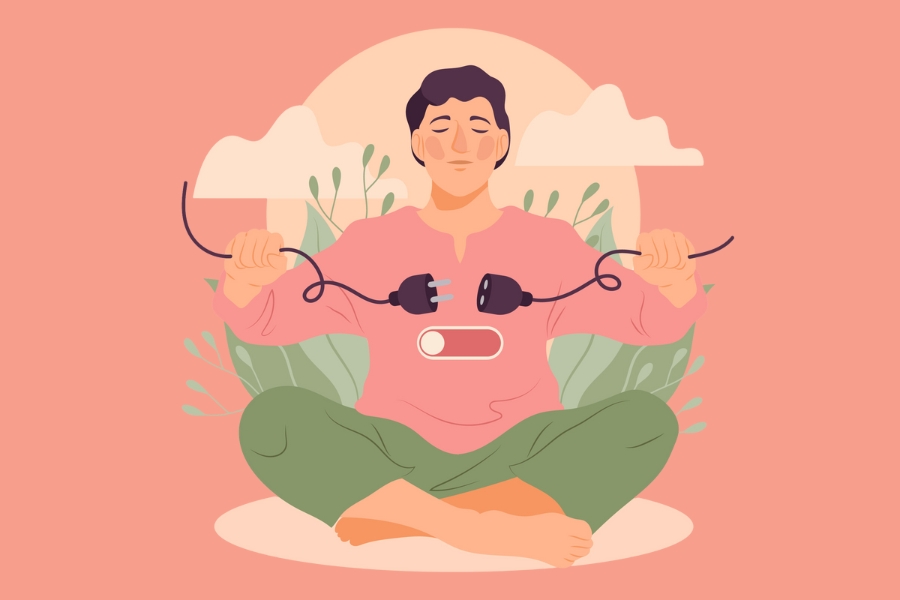
Clearly, understanding the intricate relationship between stress and mental health is crucial for anyone seeking to manage their emotional well-being.
Stress can manifest in various forms, from daily pressures to overwhelming life events, and can significantly influence how you feel and function.
Recognizing the signs of anxiety is the first step in addressing its impact on your mental health.
Understanding Stress
Mental health professionals define stress as a body’s response to perceived threats or challenges. When you experience stress, your body releases hormones like adrenaline & cortisol, preparing you for a ‘fight or flight’ response. While this can be beneficial in short bursts, chronic stress can cause multiple health complications, particularly concerning your emotional state.
The Impact of Stress on Anxiety and Depression
Between stress and mental health issues like anxiety and depression, a significant connection exists. Stress acts as a catalyst that can exacerbate existing mental health conditions or even trigger new ones. You may find that when stressors are persistent, your mind becomes overwhelmed, leading to feelings of hopelessness, increased anxiety, and persistent sadness.
It’s imperative to recognize that prolonged stress can significantly alter your brain chemistry, impacting neurotransmitters that regulate mood. Research indicates that stressed individuals are more prone to anxiety disorders and depressive episodes, which can create a vicious cycle where anxiety and depression, in turn, amplify feelings of stress.
Holistic Approaches to Mental Health
Approaches that incorporate holistic medicine focus on treating the whole person rather than merely alleviating symptoms. By considering your physical, emotional, and spiritual well-being, a holistic medicine practitioner can help you understand the root causes of stress and mental health challenges. This comprehensive perspective is critical for fostering resilience against anxiety and depression.
Anxiety and depression often go hand-in-hand with stress, making holistic approaches particularly effective. Methods such as mindfulness practices, herbal remedies, and nutritional support can stabilize your mood and reduce anxiety levels.
By engaging with holistic medicine for anxiety and holistic medicine for depression, you empower yourself to create healthier, more balanced coping mechanisms in your life.
Technique 1: Mindfulness Meditation
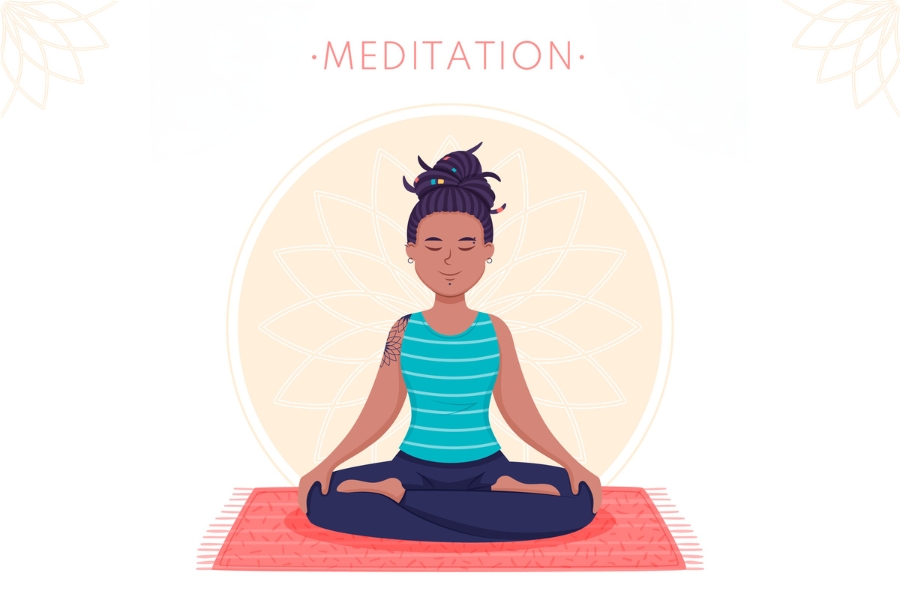
Not only is mindfulness meditation a powerful tool for managing stress but it is also considered an important practice in holistic medicine. This technique focuses your mind on the present moment, harnessing your awareness and fostering a sense of calm.
Overview of Mindfulness
Any mindfulness practice encourages you to observe your thoughts, feelings, and body sensations without judgment. By integrating mindfulness into your daily routine, you can create a space of serenity and clarity amid the chaos that often accompanies anxiety and depression.
Benefits for Stress Relief
Stress is a pervasive issue in today’s fast-paced world, but practicing mindfulness meditation can significantly reduce its impact. By training your mind to focus on the present, you allow yourself to step away from stressful thoughts that can hinder mental wellness. This approach is particularly beneficial for those seeking holistic medicine for anxiety and depression.
Technique-based mindfulness can lead to a plethora of benefits, including decreased cortisol levels and enhanced emotional regulation. Research shows that individuals who regularly practice mindfulness meditation experience a notable decrease in stress-related symptoms, making it an effective method to incorporate into your holistic health regimen.
How to Practice Mindfulness?
One way to begin practicing mindfulness is to set aside a few minutes each day for meditation. Find a quiet space, sit comfortably, and focus on your breath, allowing yourself to remain present in the moment.
This simple yet effective technique can enhance your overall well-being. By dedicating just ten minutes a day to mindfulness meditation, you can cultivate inner peace and resilience, making it easier to manage stress as well as anxiety and depression. Over time, you’ll find that this practice fosters a stronger connection between your mind and body, which is integral to holistic medicine.
Technique 2: Deep Breathing Exercises
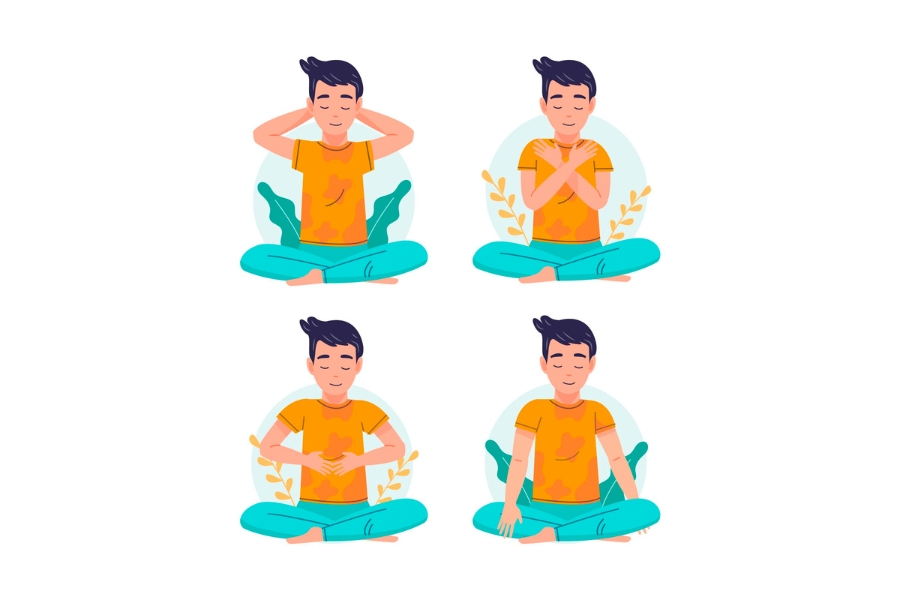
Unlike conventional methods that often focus solely on the physical aspects of anxiety and depression, holistic medicine emphasizes the interconnectedness of mind, body, and spirit. Deep breathing exercises serve as an effective tool for promoting relaxation and mental clarity, helping you alleviate stress naturally.
Importance of Breath in Stress Management
The importance of breath cannot be overstated in stress management. By becoming aware of your breathing patterns, you can activate your body’s relaxation response, reducing levels of cortisol and promoting a sense of calm. Deep, purposeful breaths can ground you, allowing your mind to settle and your body to release tension, making it a crucial practice in holistic medicine for anxiety and depression.
Various Techniques of Deep Breathing
Technique variations in deep breathing exercises offer diverse methods to suit individual preferences. These may include diaphragmatic breathing, box breathing, and 4-7-8 breathing, each designed to promote relaxation and focus.
By consistently practicing these techniques, you can enhance your overall well-being, particularly in managing stress and emotional disturbances.
Stress can build up throughout your day, but incorporating deep breathing as a practice can significantly help. For instance, diaphragmatic breathing involves focusing on fully engaging your diaphragm to maximize oxygen intake. In contrast, box breathing combines inhaling, holding, exhaling, and pausing for equal counts, creating a balanced rhythm that calms the nervous system. Finding the right technique can empower you to mitigate stress effectively.
Integrating Deep Breathing into Daily Life
On a practical level, integrating deep breathing into your daily life can be simple and transformative. Whether you’re at work, home, or even running errands, you can practice deep breathing to help maintain your calm and centered demeanor.
Breathing exercises can be seamlessly woven into your routine. Set reminders to take short, focused breaks for deep breathing throughout your day. By doing this, you create a habit that reinforces your ability to manage stress effectively, ultimately enhancing your journey with holistic medicine for depression and anxiety. Keep in mind that breath is a powerful ally in restoring balance and harmony in your life.
Technique 3: Yoga and Movement Therapy

Many people turn to yoga as a way to relieve stress and promote overall well-being. This ancient practice fosters a deep connection between the mind and body, encouraging mindfulness and relaxation. By integrating breath control, meditation, and physical postures, yoga serves as an effective form of treatment for anxiety and depression, providing you with tools to manage your emotional health.
Yoga Asanas for Stress Relief
Movement in yoga, particularly through asanas, can significantly alleviate stress. Engaging in specific postures helps release tension in your body while promoting deep relaxation. As you move through the poses, you cultivate awareness of your breath, further calming your nervous system and enhancing your mood.
An effective way to combat stress is by practicing poses like Child’s Pose, Downward Dog, and Legs-Up-the-Wall. These asanas not only stretch your muscles but also encourage circulation and help you feel grounded. They are particularly beneficial when practiced regularly, allowing you to create a sanctuary of calm in your day-to-day life.
Alternative Movement Therapies
Therapy through movement extends beyond traditional yoga. Holistic medicine practitioners often recommend alternative treatments such as tai chi and dance therapy to help you navigate stress. These approaches combine gentle movement with mindfulness, making them excellent options for enhancing your mental health.
Yoga, tai chi, and dance therapy all focus on rhythmic, fluid motions that engage your body and mind. By incorporating these alternative movement therapies into your routine, you can cultivate a more profound emotional resilience. They enable you to express your feelings physically, promoting not just stress relief but a more vibrant state of well-being in your daily life.
Technique 4: Herbal Remedies
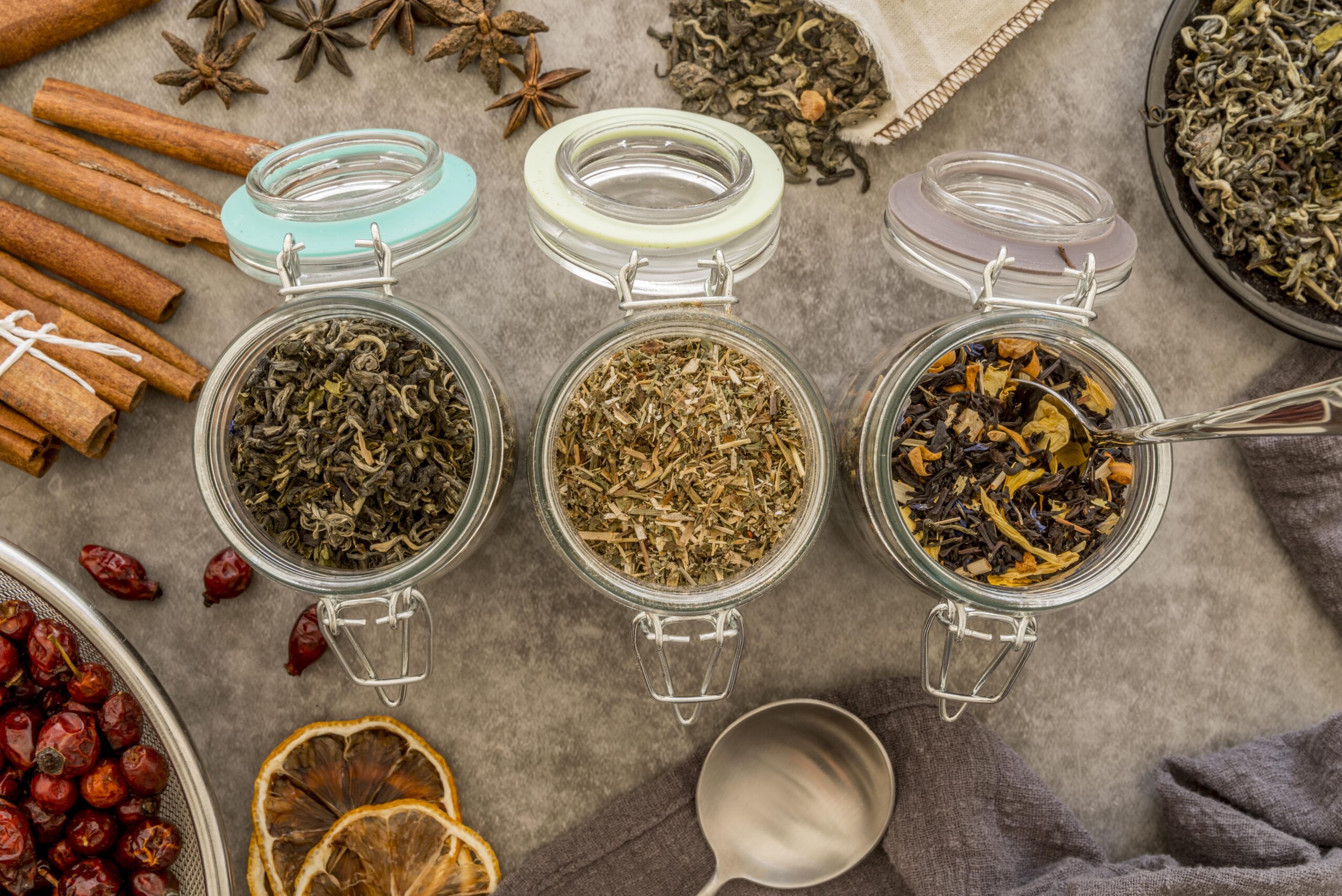
Keep in mind that herbal remedies are a cornerstone of a holistic approach, offering a natural approach to stress relief. Many people find that certain herbs can help alleviate symptoms of anxiety and depression, promoting overall mental well-being.
Common Herbs for Stress Relief
On your journey toward managing stress, consider incorporating herbs like chamomile, known for its calming properties, or ashwagandha, which helps the body adapt to stress. Other popular options include lavender and valerian root, both praised for their ability to promote relaxation and improve sleep quality.
Preparing Herbal Remedies
Any time you prepare herbal remedies, focus on using high-quality herbs to ensure potency. You can create teas, tinctures, or infused oils, depending on your preference. Steeping dried herbs in hot water for tea or using alcohol to extract beneficial properties for tinctures are both effective methods.
With a little practice, you can easily make your herbal remedies at home. Start by sourcing fresh or dried herbs from reputable suppliers and follow preparation guidelines. Experiment with different combinations to discover what works best for your individual needs, and pay attention to your body’s responses as you incorporate these natural elements into your wellness routine.
Consulting a Practitioner for Guidance
Consulting a holistic medicine practitioner can provide you with valuable insights into the best herbal remedies for your specific stress levels. They can help personalize your approach and recommend the most suitable herbs based on your health history.
Herbal remedies can have potent effects, and navigating them without guidance may lead to undesirable results. By working with a qualified practitioner, you ensure you’re making informed choices tailored to your unique situation, optimizing the benefits of holistic medicine for anxiety and depression.
Technique 5: Aromatherapy

Despite the array of modern treatments for stress management, many individuals are turning to this for anxiety relief. Aromatherapy offers a natural approach, utilizing vital oils to promote emotional well-being and relaxation.
Basics of Aromatherapy
With aromatherapy, you harness the power of plant extracts and vital oils to influence your mood and health. This practice has been used for centuries in various cultures, often integrated by holistic medicine practitioners to support mental and physical wellness.
Essential Oils for Stress Relief
For effective stress relief, specific vital oils have proven particularly beneficial. Oils such as lavender, chamomile, and bergamot can help reduce anxiety levels, allowing you to feel more grounded and calm.
The technique utilizes these oils by stimulating your olfactory system, which is directly linked to your emotional center. The inhalation of these aromas sends signals to your brain, helping to decrease cortisol levels, a hormone associated with stress. By incorporating these vital oils into your routine, you may notice enhanced relaxation and a more balanced emotional state.
Methods of Application
Stress can be alleviated through various methods of applying vital oils, ranging from diffusing to topical application. Choosing the method depends on your needs and choices.
Basics include using a diffuser to disperse the oils into the air or applying diluted oils to your skin for direct benefits. Remember that when topically applying oils, carrier oil is vital for safety.
To wrap up
These stress-relieving techniques under holistic medicine can empower you to take control of your mental well-being. Whether you seek the guidance of a holistic medicine practitioner or explore various practices on your own, integrating methods specifically designed for anxiety and depression can profoundly enhance your overall health. By embracing a holistic approach, you can cultivate balance in your life and develop resilience against stress, leading to a more fulfilling existence.
FAQs
Q: What is holistic medicine, and how does it relate to stress relief?
A: Holistic medicine is an approach to health that considers the whole person—mind, body, and spirit—when treating issues like stress. Holistic medicine practitioners believe that stress can impact these different areas of life. Through a combination of techniques such as therapy, nutrition, and mindfulness, they aim to alleviate stress comprehensively.
Q: Can holistic medicine help with depression? If so, how?
A: Yes, holistic medicine can be beneficial for depression by addressing underlying emotional and physical factors. Techniques such as acupuncture, herbal supplements, nutritional counseling, and talk therapy provided by a holistic medicine practitioner can enhance emotional well-being, boost mood, and promote a deeper sense of purpose and fulfillment.
Q: What role does nutrition play in holistic medicine for stress relief?
A: Nutrition plays a crucial role in holistic medicine for stress relief. A balanced diet rich in whole foods, vitamins, and minerals can strengthen the immune system and boost mood. Holistic medicine practitioners often work with clients to develop dietary plans that include foods known to improve brain health and alleviate stress, such as omega-3 fatty acids, antioxidants, and complex carbohydrates.
Q: Are these techniques suitable for everyone, regardless of their stress levels?
A: While holistic medicine techniques are generally beneficial, they may not suit everyone. Individuals need to consult with a holistic medicine practitioner before starting any new methods, especially if they have pre-existing health conditions or severe anxiety or depression. Customized approaches ensure that the chosen methods are safe and appropriate for each individual’s unique circumstances.
